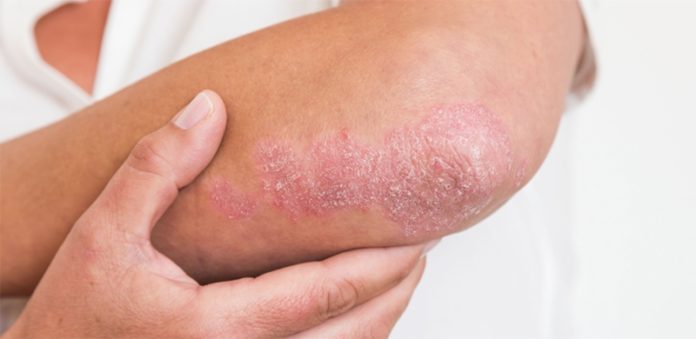Red, bumpy patches of skin…irritation and itchiness…psoriasis is annoying, yes. But it’s much more than an issue of itchiness or vanity. The team at Harpeth Valley Dermatology understands all that psoriasis is, what it feels like physically and emotionally, and how to treat it to get you back to living your best life.
What is Psoriasis?
These red patches of skin covered with silvery-white scales are an autoimmune response in which skin cells overproduce too quickly. This means the old skin cells haven’t sloughed off yet. The typical cycle of a cell happens slowly, over about a month. With psoriasis, it occurs within days. When new cells produce too rapidly, the old and new cells overload and build up, causing inflammation, itchiness, redness and bumps. Sometimes these irritated patches can crack and bleed, leading to further discomfort or posing a risk for infection.
Genetics may play a part in psoriasis, but the skin condition can skip generations. It can come on suddenly as a flare-up or be triggered by external events. It can resolve quickly or last for a long time. Some potential triggers include:
- Stress
- Alcohol
- Medications
- Injuries
- Infections
Because psoriasis is now understood as an autoimmune condition, not just a skin problem, treatment can target either the symptoms or the underlying cause.
Living With Psoriasis
Psoriasis has three basic treatment options. It’s important to work with your dermatologist to determine the right fit for you. Treatment can be topical, such as prescribed creams or ointments for use on an as-needed basis for occasional flare-ups in mild to moderate cases. Phototherapy, also called light therapy, may be used to target patches with UV light. Psoriasis can also be treated with systemic medications, such as oral or injectable drugs that fight the disease inside the body.
For many patients, a combination of these treatments provides the best overall results. You may use a biologic to control and prevent or minimize flare-ups and a topical to provide comfort and relief for occasional flare-ups. If you suspect you may have psoriasis or have been diagnosed with psoriasis, but want to explore more treatment options, schedule an appointment with the board-certified dermatologists at Harpeth Valley Dermatology or call 615-905-8083.
Have a question for Harpeth Valley Dermatology? Fill out the form below:



























